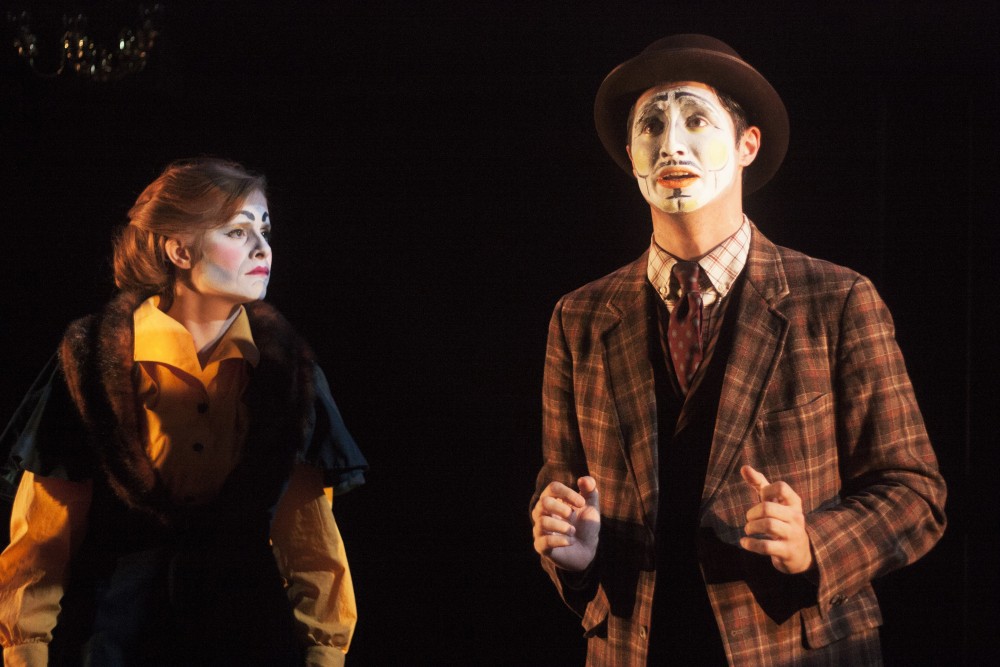
Suitably for Inis Nua Theatre Company’s coproduction with Drexel University’s Mandell Professionals in Residence Project, DUBLIN BY LAMPLIGHT is a real theater people’s play.
Willy (Joey Teti), a playwright, is trying to create an official Irish theater during the tumultuous time before Ireland won its independence from England. He is not a political person, but his brother Frank (Jacob Kemp) is, and everyone suffers the consequences.
Despite the bleak subject matter, this play is fun and snappy. Drawing from the traditional theater of commedia dell’arte, the cast wears clown makeup and uses exaggerated actions, most successfully Teti, with his heel clicks and hilarious physicality. There are plenty of “in” jokes for theater folks, from excessive use of comps, to a recurring wet paint gag, to a roving Oscar Wilde replicant, Martyn (Mike Dees). It all comes together when the reflective play within a play reveals the question: can there be art without politics?
The first act flashes by seamlessly under Tom Reing’s direction, passing quickly from character to character in a style reminiscent of “Wandering Rocks” in Joyce’s Ulysses. They are guided by the equally fluid music of John Lionarons on the piano. He samples a number of traditional Irish tunes: “Foggy Dew” for the revolution, “The Parting Glass” when one of the crew is about to set sail, “Ar Eirinn Ní Neosfainn Cé Hí” for the suffragette patron of the theater, Eva St. John (Rachel Brodeur).
Eva has just signed a lease for the theater (in which she happens to be the leading lady), but is arrested for protesting the King of England’s presence in Dublin that day. Sweet, sad set-designer Jimmy (Drew Sipos) is in love with washer-woman Maggie who’s in love with Frank. Frank, who is supposed to play the mythical Cuchulainn, is trying to set off a bomb. Willy is trying to pull it all together for the opening of the The Wooing of Emer when his watch is stolen, leaving him with no money to lease the theater. What more could go wrong?
In the second act we experience the mayhem of their opening night. Somehow the cast takes the action from ham to ham squared. Maggie (Marlyn Logue) steps into the leading role. Eva appears and is jealous, so they finish their speech about Ireland’s uprising together. Jimmy is forced to play Cuchulain (Jimmy: “I don’t know what to say!” Willy: “You can thank me later”). Frank appears and disappears with a bomb going off in between. The theater is shut down and everyone is arrested.
From here the players stories spin away from each other. They descend into their classically Irish endings of abandonment, betrayal, and death. These are acted in the same way as the rest of play: clowning and only representative of actual emotion. Without the whirlwind excitement of the beginning, or the energy of the group dynamic in the middle, this seems a disservice to the otherwise stellar production, and to the very real hell the Irish people went through during that time.
But what’s more Irish than to try and laugh away troubles? Michael West’s play accomplishes this, allowing us to both forget and remember our own current troubles in its reflection.
[Mandell Theater, 3201 Chestnut Street]. November 9-20, 2016; inisnuatheatre.org.
